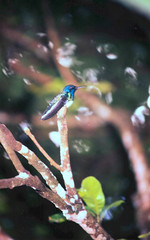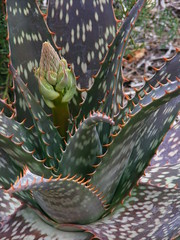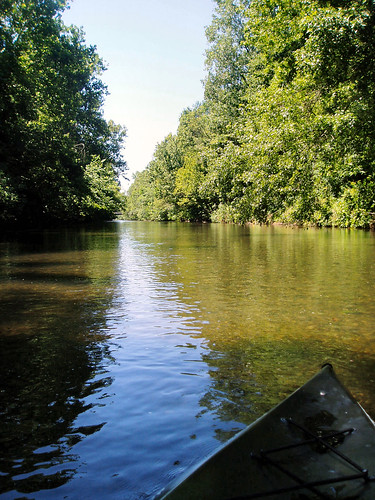Showing posts with label birds. Show all posts
Showing posts with label birds. Show all posts
Saturday, September 05, 2009
International Vulture Awareness Day!
Today is International Vulture Awareness Day, which makes it the perfect day to dust off this old blog and get it up and running again.
I happen to love vultures. I never get tired of seeing them patrol the skies and I still get a little thrill when I spot a black vulture among the more numerous turkey vultures in my area.
My last memorable encounter with vultures happened in July in the Elmwood Park Zoo in Norristown, Pennsylvania. The zoo has a lovely open exhibit of bald eagles near the entrance, the sort of enclosure that relies on moats and walls rather than fencing to keep the animals in. They have two bald eagles in the exhibit and I was snapping pictures of them, wondering why in the world they had so many black vultures in with the eagles. Then the sun came out from behind a cloud and the vultures, as if on cue, opened their wings to catch some rays. I then realized the vultures were neither pinioned nor banded and therefore had to be volunteers. The wild vultures had figured out that the bald eagle exhibit was a safe place to hang out and pick up some fishy snacks.
Vultures won't be in the Cincinnati area much longer this year; they wander down south for the winter months. So get outside and have a look at the skies, especially on a warm sunny day and you'll almost certainly be rewarded with a vulture sighting.
Monday, January 05, 2009
A quick note regarding ring tones
I've not much of anything today. I'm a bit worn out from my first day of work after a four day weekend plus a 2.6 mile run after work. But I thought I'd share this link for free ring tones from the Center for Biological Diversity. I'm quite liking my new Barred Owl ring tone.
Labels:
birding,
birds,
life as I know it,
phone,
ringtones
Sunday, January 04, 2009
Syrinx
 I like to think I know a little something about birds, but even after years of study, I'm still discovering new information. I received a bookmark in the mail some weeks ago from the Cornell Lab of Ornithology which showed a picture of a Wood Thrush on one side and factoids about the bird on the other. From the bookmark:
I like to think I know a little something about birds, but even after years of study, I'm still discovering new information. I received a bookmark in the mail some weeks ago from the Cornell Lab of Ornithology which showed a picture of a Wood Thrush on one side and factoids about the bird on the other. From the bookmark:"Thrushes have a complicated syrinx (song box) that allows them to sing two notes at the same time and harmonize with their own voice."
From the website, pertaining to all birds, not just thrushes:
"All calls and songs come from the syrinx, a unique organ in the bird's body cavity at the division of the trachea and bronchi. The elaborate syringeal muscles enhance the frequency of their songs. The syrinx consists of two independent halves that can produce two different sounds at the same time."
 In Greek mythology, Syrinx was a nymph and a follower of Artemis, well known for her chastity. She unfortunately encountered the randy Pan whilst on a hunt and rather than submit to his attentions, cried out to her water nymph friends who turned her into a clump of reeds. Not one to waste an opportunity, Pan harvested the reeds and made a musical instrument, known today as panpipes or the syrinx.
In Greek mythology, Syrinx was a nymph and a follower of Artemis, well known for her chastity. She unfortunately encountered the randy Pan whilst on a hunt and rather than submit to his attentions, cried out to her water nymph friends who turned her into a clump of reeds. Not one to waste an opportunity, Pan harvested the reeds and made a musical instrument, known today as panpipes or the syrinx.Wood Thrush photo by Badjoby on Flickr.
Labels:
bird songs,
birding,
birds,
education,
mythology,
syrinx,
Wood Thrush
Tuesday, August 12, 2008
Weekend Roundup
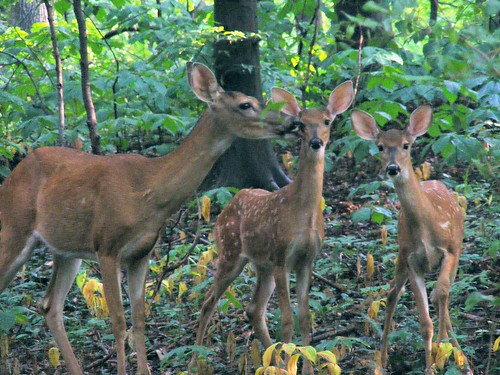 After running 5K Saturday morning, I spent the afternoon walking along my little street gathering signatures in order to have the city look into putting speed bumps in to slow down the traffic. Every neighbor I've talked to has a story to tell - everyone who has had to park on the street has had their cars hit and several people have lost pets to speeding cars. Cincinnati received a grant this year to spend on street calming initiatives and hopefully ours will be one of those to benefit.
After running 5K Saturday morning, I spent the afternoon walking along my little street gathering signatures in order to have the city look into putting speed bumps in to slow down the traffic. Every neighbor I've talked to has a story to tell - everyone who has had to park on the street has had their cars hit and several people have lost pets to speeding cars. Cincinnati received a grant this year to spend on street calming initiatives and hopefully ours will be one of those to benefit.I went hiking around Caldwell Nature Preserve early Sunday morning and I was the only person on the trails the entire hour. I spent a good fifteen minutes with the trio pictured - the fawns were very curious about me and kept inching closer as I stayed as still as possible and kept snapping photos.
This preserve has scads of pawpaw trees and I spotted lots of unripe fruit in the canopy. I'm planning a return visit once the fruit starts to ripen later in the year.
I also joined up with the Cincy Paddlers group on Sunday for an easy five mile run down the Whitewater River in Indiana. I hadn't been on that river for many years and was pleased to find how clean it was (notwithstanding the case of beer cans I picked up from the banks) compared to how I remembered it. The highlight of the trip for me was spotting a lone osprey hunting along the river. I also picked up a good tip from another new member; the Elkhorn Creek down in Kentucky looks like a lot of fun.
Thursday, May 29, 2008
Pileated Woodpecker
Pileated Woodpecker
Originally uploaded by lilysecret42
Edited to add:
As I was walking Caldwell Nature Preserve today, just before taking this video, I came across a man out hiking with three adorable little girls, who were probably five years old. They were sitting on a fallen log while the guy chatted into a cell phone. I was kitted out in my usual gear: day pack, binoculars, walking stick. I said hello to them and one of the girls looked at me in wide-eyed amazement, as if she'd just seen a mythical being, and said "You must be - a girl scout!"
Labels:
birding,
birds,
Cincinnati,
hiking,
life as I know it,
nature,
Ohio
Tuesday, May 27, 2008
Summer is here....
 The Nighthawks, Ruby-Throated Hummingbirds and Chimney Swifts have all arrived on the scene and the seventeen-year cicadas are starting to emerge out on the east side of town, so as far as I'm concerned, summer has officially arrived.
The Nighthawks, Ruby-Throated Hummingbirds and Chimney Swifts have all arrived on the scene and the seventeen-year cicadas are starting to emerge out on the east side of town, so as far as I'm concerned, summer has officially arrived. One of the highlights of the long weekend was a fourteen mile kayak trip down the Little Miami. I arrived on the river at eight in the morning, well before the "cabrewers" showed up. There were simply scads of birds about, including Spotted Sandpipers, Cedar Waxwings, Waterthrush and Black Vultures. I floated past a Great Blue Heron rookery, in which I counted twenty nests, though I'm sure there were more that I couldn't see. In fact, I floated past it three times, since I kept paddling back upstream to take in the sight. I apologize for the poor picture quality, but I'm nervous about taking my good camera out on the river, so I had to settle for my cheap, water-resistant digital with a mere 4X zoom. There are some nice photos and descriptions of heron courtship, breeding and nesting behavior at the Great Blue Heron Rookery website.
Sunday, April 27, 2008
Weekend Report
 Saturday morning I got up bright and early and dashed down to Findlay Market to see what goodies were available. I found (and brought home) asparagus, spinach, sorrel, eggs and a pot of thyme, all locally grown. I also found fresh fava beans at Madison's so I grabbed some of those as well. I'm going to make sorrel soup from the recipe I found on the Cincinnati Locavore blog tomorrow night.
Saturday morning I got up bright and early and dashed down to Findlay Market to see what goodies were available. I found (and brought home) asparagus, spinach, sorrel, eggs and a pot of thyme, all locally grown. I also found fresh fava beans at Madison's so I grabbed some of those as well. I'm going to make sorrel soup from the recipe I found on the Cincinnati Locavore blog tomorrow night.
I'd planned to spend the rest of the weekend at home finishing my spring cleaning, but today was just too nice outside and I dropped everything this afternoon to get in a quick two and a half mile hike over at French Park. I'm glad I did; I heard reedy calls of Gnatcatchers several times and I also heard the first Red-Eyed Vireo and Hermit Thrush of the season. Larkspur and Blue-Eyed Mary were in bloom as well. Unfortunately, French Park seems to be a bit sparse on native wildflowers and heavy in the introduced and problematic Garlic Mustard; there was scads of it blooming on the hillsides. I guess deer don't care much for its flavor.
Sunday, April 13, 2008
Late to the party
 Well, I missed out on the fact that the American Ornithologist's Union had split the Canada Goose subspecies into two distinct species back in 2004. I knew the Canada Goose (pictured) had several subspecies before, mostly varying in size (smaller to the north) and coloration (darker to the west). Results from genetic analysis revealed that four of the smallest subspecies of the Canada Goose were quite distinct from the larger subspecies and the A.O.U. decided they were sufficiently different to be known as a separate species called the Cackling Goose.
Well, I missed out on the fact that the American Ornithologist's Union had split the Canada Goose subspecies into two distinct species back in 2004. I knew the Canada Goose (pictured) had several subspecies before, mostly varying in size (smaller to the north) and coloration (darker to the west). Results from genetic analysis revealed that four of the smallest subspecies of the Canada Goose were quite distinct from the larger subspecies and the A.O.U. decided they were sufficiently different to be known as a separate species called the Cackling Goose.The conundrum this poses for birders is well illustrated in the article The New Goose. I've no idea if I've seen this bird or not; I certainly saw tiny Canada Geese during visits to California in the past but I didn't give them much thought. On my next visit I'll be paying more attention.
Labels:
"Cincinnati Nature Center",
birding,
birds,
Cackling Goose,
Canada Goose,
geese,
goose,
indentification,
nature,
waterfowl
Monday, April 07, 2008
Mondays...
I think I'll just start making Mondays my day to let someone else do the blogging. It's usually my busiest day at work and between that and the shock of going back to work after a nice weekend, my brain moves into auto-pilot. I get things done, but there's no contemplation going on.
I did walk the long path around Glenwood Gardens after work today and spotted about a half dozen Blue Winged Teal in one of the small ponds on their grounds. I'm always happy to see those pretty little ducks.
I leave you with a video on how to make a brimmed beanie out of an old sweater.
I did walk the long path around Glenwood Gardens after work today and spotted about a half dozen Blue Winged Teal in one of the small ponds on their grounds. I'm always happy to see those pretty little ducks.
I leave you with a video on how to make a brimmed beanie out of an old sweater.
Sunday, April 06, 2008
Go Local, Go Organic
As if I needed any more reasons to buy as much of my food as possible locally and/or organically produced, an article in the New York Times reports that pesticides used on food crops overseas are killing songbirds and raptors.
Did Your Shopping List Kill a Songbird?
Did Your Shopping List Kill a Songbird?
Tuesday, April 01, 2008
A great place to bird...
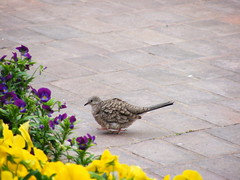 Texas is a great place to bird. Most of the migratory bird species that nest in North America will pass through Texas at some point. I visited the San Antonio Botanical Garden my second day in town and the birds appeared to be as thrilled with it as I was. It's a gorgeous park, sprawling over 33 acres, it includes several greenhouses featuring different collections as well as trails which pass through representations of three of the typical habitats of Texas: South Texas, Piney Woods and Hill Country. Before I knew it three hours had passed and I was a bit tired and hungry. Fortunately for me the Garden has a nice cafe where I was able to revive with a bowl of lamb caldo and some tea.
Texas is a great place to bird. Most of the migratory bird species that nest in North America will pass through Texas at some point. I visited the San Antonio Botanical Garden my second day in town and the birds appeared to be as thrilled with it as I was. It's a gorgeous park, sprawling over 33 acres, it includes several greenhouses featuring different collections as well as trails which pass through representations of three of the typical habitats of Texas: South Texas, Piney Woods and Hill Country. Before I knew it three hours had passed and I was a bit tired and hungry. Fortunately for me the Garden has a nice cafe where I was able to revive with a bowl of lamb caldo and some tea.On Saturday, a wonderful woman I met through the Yahoo! Group SATXbirds forum picked me up at my hotel and we spent the day birding together. We visited the headwaters of the San Antonio River, then headed for Warbler Woods, which is a private estate that is kept as a nature preserve and sanctuary. The birds were pretty quiet that day, but it was still an incredible spot and I hope to return for another visit. After that we had lunch at a fabulous Texas barbecue joint called Harmon's. The chopped pork sandwich was to die for and the ambiance couldn't be beat - there were even horses tied to a hitching post out back. Following lunch we headed out to Mitchell Lake Audubon Center where we found a couple of wonderful birds - a Green-Tailed Towhee and a Least Grebe.
I haven't sat down and completed my trip checklist yet but when I do I'll be updating this post with it. You can see plenty of photos over at my Flickr account in my San Antonio Collection.
Friday, March 28, 2008
The Grackles of the Riverwalk in San Antonio
I imagine even non-birders have to take note of the Riverwalk's resident grackles. They are large, noisy, brash, gregarious and at least at this time of year, have a night roost in the trees around the Riverwalk. They go by the common name of Great-Tailed Grackle and it's apt, given the way the males fan their long tails and flourish them in an attempt to impress a female grackle. When they're not busy wooing, they stroll about snatching fallen tortilla chips. The grackles have an impressive array of vocalizations and at night when they are settling down for bed it is a veritable cacophony in the trees above.
There are also large numbers of white-winged doves, pigeons, mallards and house sparrows living off the leavings of huge numbers of tourists. The umbrellas which shade nearly every outdoor table along the Riverwalk are not just there to protect from sun and rain. I'm by no means a germ-phobe, but I'm quite glad I packed a purse-size bottle of hand sanitizer on this trip. Every unprotected outdoor surface bears evidence of the abundance of bird life in the area.
Here's a ten second video of a male great-tailed grackle bathing in a fountain at the San Antonio Botanical Garden:
There are also large numbers of white-winged doves, pigeons, mallards and house sparrows living off the leavings of huge numbers of tourists. The umbrellas which shade nearly every outdoor table along the Riverwalk are not just there to protect from sun and rain. I'm by no means a germ-phobe, but I'm quite glad I packed a purse-size bottle of hand sanitizer on this trip. Every unprotected outdoor surface bears evidence of the abundance of bird life in the area.
Here's a ten second video of a male great-tailed grackle bathing in a fountain at the San Antonio Botanical Garden:
Labels:
"San Antonio",
birding,
birds,
grackles,
life as I know it,
travel
Monday, March 17, 2008
Counting Coots
 I photographed this lone coot at Sharon Wood's lake last week, which inspired me to learn a bit more about this odd rail. I found a report on a scientific study which suggests that coots can count, at least as far as the number of eggs in their own nest goes. Coots, like many other species of birds, practice a behavior known as brood parasitism. This involves a gravid female sneaking onto an unguarded but active nest and laying an egg within, leaving the owner of the nest to raise the sneak's offspring. Since this might be detrimental to the victim's own offspring, there is constant pressure to recognize that the parasitism has taken place and to counteract it afterwards. Coots apparently do this by counting the eggs in their nest once they are finished laying and rejecting any that appear later. They may push the offending egg out of the nest, bury it deep in the nest material where they will never hatch, or relegate it to the periphery of the nest where it will have a diminished chance of hatching.
I photographed this lone coot at Sharon Wood's lake last week, which inspired me to learn a bit more about this odd rail. I found a report on a scientific study which suggests that coots can count, at least as far as the number of eggs in their own nest goes. Coots, like many other species of birds, practice a behavior known as brood parasitism. This involves a gravid female sneaking onto an unguarded but active nest and laying an egg within, leaving the owner of the nest to raise the sneak's offspring. Since this might be detrimental to the victim's own offspring, there is constant pressure to recognize that the parasitism has taken place and to counteract it afterwards. Coots apparently do this by counting the eggs in their nest once they are finished laying and rejecting any that appear later. They may push the offending egg out of the nest, bury it deep in the nest material where they will never hatch, or relegate it to the periphery of the nest where it will have a diminished chance of hatching.I've come to expect brilliant behavior from birds like the crows and the parrots, but counting ability from a coot astounded me. They are somewhat comical birds and have been likened to a water-going pigeon due to their habit of pumping their head back and forth when they swim, much as pigeons do when walking.
Sunday, March 16, 2008
Hiking the Shaker Trace Loop
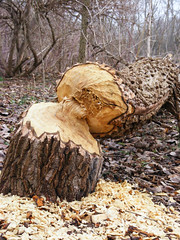 Today I walked the long loop (7.8 miles) of the Shaker Trace trail at Miami-Whitewater Forest. It's not my favorite path; long stretches of it pass through miles of corn fields, which make for rather dull walking. It has the advantage of being paved, however. Between the melting snow from last week's blizzard and the following rain, I thought I would be ankle deep in mud on most of my favorite trails. There were just loads of birds making themselves known today and it made the walk enjoyable; there's a list of what I saw (or heard) below, haphazardly ordered. Still, I was quite footsore by the end; walking on pavement tires me out much more than walking on dirt and leaves.
Today I walked the long loop (7.8 miles) of the Shaker Trace trail at Miami-Whitewater Forest. It's not my favorite path; long stretches of it pass through miles of corn fields, which make for rather dull walking. It has the advantage of being paved, however. Between the melting snow from last week's blizzard and the following rain, I thought I would be ankle deep in mud on most of my favorite trails. There were just loads of birds making themselves known today and it made the walk enjoyable; there's a list of what I saw (or heard) below, haphazardly ordered. Still, I was quite footsore by the end; walking on pavement tires me out much more than walking on dirt and leaves.I spotted the pictured large tree obviously felled by a beaver along the Dry Fork Creek. Extirpated from Ohio by 1830, beavers started making their way back into Ohio in the 1940s and have been expanding their range ever since. The range map on this page doesn't even show Hamilton County as confirmed for an active beaver population, but I suspect is is simply out of date. I saw signs of a beaver family living in this area ten years ago.
On a different note, one of my favorite authors was in the news these past couple of days for having donated a million dollars to Alzheimer's research. Terry Pratchett was recently diagnosed with early onset Alzheimer's disease himself. His legions of fans have started a campaign to match Terry's donation called Match It For Pratchett. There you will find links to donate directly to the Alzheimer's Trust or you can buy a t-shirt, decorated with elephants and the Great A'Tuin. It's a worthy cause even if you're not a Pratchett fan. If you've not read any of his work, you should do so; he's brilliantly funny.

Belted Kingfisher, Eastern Phoebe, American Crow, Blue Jay, Song Sparrow, Carolina Wren, Carolina Chickadee, Tufted Titmouse, Mallard, Canada Goose, Cooper's Hawk, Killdeer, Red-Winged Blackbird, Red-Tailed Hawk, Kestrel, Wild Turkey, Grackle, Turkey Vulture, Rufus-Sided Towhee, Eastern Bluebird, White-Throated Sparrow, Downy Woodpecker, Red-Bellied Woodpecker, Pileated Woodpecker
Labels:
Alzheimer's,
birding,
birds,
books,
Cincinnati,
hiking,
life as I know it,
nature,
Ohio,
Terry Pratchett
Sunday, March 02, 2008
California Woods
March has decided to come in like a lamb here in Cincinnati. After last month's bitter cold, snow, ice and slush, today's sixty degrees felt heavenly. I grabbed my camera and binoculars and headed out to California Woods to hike the trails. I was hoping to catch some early emerging wildflowers but there were none that I saw. I did spot my first Turkey Vulture of the year though. Of course, some of them don't migrate all that far south in the winter; they just mosey down to Kentucky or Tennessee for a couple of months before heading back this way.
The park is collecting maple sap for syrup and many of the trees near the nature center had buckets attached. One was overflowing so I helped myself to a few drops of the faintly sweet sap. It helped convince me that spring is truly on its way.

There was a nice stand of horsetails in the park and I hunkered down to get a few snaps of them. They get the name horsetail from the feathery fronds that sprout up later in the year. Horsetails are primitive plants, reproducing from spores or rhizomes and they have been around since the reign of the dinosaurs. The stalks contain crystals of silica and were at one time used for polishing and scrubbing pewter ware; their other common name is scouring rush. They prefer wet soil and I found these growing along the flood plain of the Lick Creek.
The park is collecting maple sap for syrup and many of the trees near the nature center had buckets attached. One was overflowing so I helped myself to a few drops of the faintly sweet sap. It helped convince me that spring is truly on its way.

There was a nice stand of horsetails in the park and I hunkered down to get a few snaps of them. They get the name horsetail from the feathery fronds that sprout up later in the year. Horsetails are primitive plants, reproducing from spores or rhizomes and they have been around since the reign of the dinosaurs. The stalks contain crystals of silica and were at one time used for polishing and scrubbing pewter ware; their other common name is scouring rush. They prefer wet soil and I found these growing along the flood plain of the Lick Creek.
Labels:
birds,
Cincinnati,
hiking,
identification,
interesting,
life as I know it,
local,
nature,
plants
Sunday, February 24, 2008
White-necked Jacobin
This is one of the photos I scanned today, taken at Asa Wright Nature Center some eleven years ago.
I just checked the comments page and it got an award! OK, it's a Flickr group award and there's no money or anything, but it's the first award I ever got on Flickr. Wheee!
I just checked the comments page and it got an award! OK, it's a Flickr group award and there's no money or anything, but it's the first award I ever got on Flickr. Wheee!
Labels:
accomplishments,
birds,
life as I know it,
photography,
travel
Friday, February 22, 2008
Winter Greens and Bird Behavior
Today I found out that the Wyoming Farmer's Market has a few items available even in mid-winter. The market sells locally produced goods and food and they've arranged a pre-order and drop-off system for the off season. I ordered a beeswax candle, some soap and hand salve, as well as arugula and corn mache. I know I've had arugula in salads before, but I've never purchased it separately. I've never had corn mache to the best of my knowledge. I have a couple of days to learn about both of these greens before I bring them home.
Oh look, I found a lovely recipe for an arugula salad and I just happen to have most of the ingredients on hand. Perfect.
After placing my order for the farmer's market, I happened to witness some fascinating bird behavior, although I'm rather ashamed to say it was on America's Funniest Home Videos. I tried to find it on YouTube; no luck on the original but the following video shows the same actions. The Green Heron drops bits of bread in the water as bait to lure fish into striking range:
It's not the only bird that uses its brain to get at food. Crows have been witnessed placing hard-to-open nuts into roads; after the nuts are crushed by a passing car the crows help themselves to the freed nut meat. I've seen Grackles steal dry dog food from pet bowls and carry the nuggets to a bird bath, where they dunk them until they are soft enough for the bird to swallow. Bird brains indeed.
Oh look, I found a lovely recipe for an arugula salad and I just happen to have most of the ingredients on hand. Perfect.
After placing my order for the farmer's market, I happened to witness some fascinating bird behavior, although I'm rather ashamed to say it was on America's Funniest Home Videos. I tried to find it on YouTube; no luck on the original but the following video shows the same actions. The Green Heron drops bits of bread in the water as bait to lure fish into striking range:
It's not the only bird that uses its brain to get at food. Crows have been witnessed placing hard-to-open nuts into roads; after the nuts are crushed by a passing car the crows help themselves to the freed nut meat. I've seen Grackles steal dry dog food from pet bowls and carry the nuggets to a bird bath, where they dunk them until they are soft enough for the bird to swallow. Bird brains indeed.
Labels:
birds,
Cincinnati,
food,
interesting,
life as I know it,
local,
Ohio,
vegetables,
winter
Friday, February 15, 2008
Citizen Scientists

One doesn't have to hold a science degree to contribute to the sum of human knowledge. I just learned of a new project today, called Budburst, which is enlisting the help of citizen scientists across the country to record the timing of the leafing and flowering of plants.
People can also help with monitoring amphibian populations through FrogWatch, sponsered by the National Wildlife Federation. The website has helpful identification tools, including sound recordings of the calls and croaks of various frogs and toads.
This very weekend is the Great Backyard Bird Count, which is a huge four-day event involving people reporting the number and species of birds found around their homes. Anyone can participate; this is a great introduction to the world of birding for novices. It doesn't involve any special equipment other than eyes and ears (although binoculars really are helpful).
Sunday, February 03, 2008
Hiking in Germantown

As usual, I decided to forgo any Super Bowl related activities today and went for a seven mile hike instead. I walked the long loop at Germantown Metropark, which is southwest of Dayton, Ohio. It's a great trail, wandering through old growth forest, cedar groves, riparian bottom land, a meadow and across a dam. It circles a portion of the valley through which the Twin Creek flows. The Twin Creek itself looks like it might be a tidy little river to try in the kayak during warmer weather.
The deeper woods were full of the calls and hammerings of Pileated Woodpeckers. I even saw a group of three cavorting through the treetops. It may seem like the dead of Winter out there but the Pileateds have Spring in their blood. There were other woodpeckers about as well, the common Red-bellied and the less common Hairy Woodpecker made themselves known. I even spotted a grizzled possum trundling along through the leaves in broad daylight.
It took me a ridiculously long time to walk the trail though, about four hours. The combination of having short legs and a naturalist's curiosity make for some mighty slow walking. Also, the last mile or two of the trail was often steep and icy; after I'd slipped and fallen twice I slowed my pace even further. During the second fall my trusty hiking staff saved me from crashing onto one knee and so I arrived home without injuries, not even a bruise. I sometimes get odd looks and comments from other hikers in regards to my stick, but it's saved me from nasty falls on more than one occasion.
Saturday, January 26, 2008
Signs of the Pileated

I managed to get in a hike at Caldwell Nature Preserve today. The ground was rock hard except where I was crunching through frost heave. I didn't see another soul on the trails, although it was a balmy 27o today; a far cry from the 4o it was just yesterday morning.
I came across this scarred tree trunk on the Pawpaw trail. The large, elongated holes and the massive damage were clear signs that a Pileated Woodpecker had been at work here. They are huge black and white crow-sized birds with a magnificent red crest. I didn't actually see any today, but just a couple of minutes after I'd photographed this tree trunk, I did hear at least one calling from across the ravine. They are shy birds and are much more often heard than seen, so learning what their calls sound like is most helpful when searching them out.
Edited to remove broken link.
Subscribe to:
Posts (Atom)



